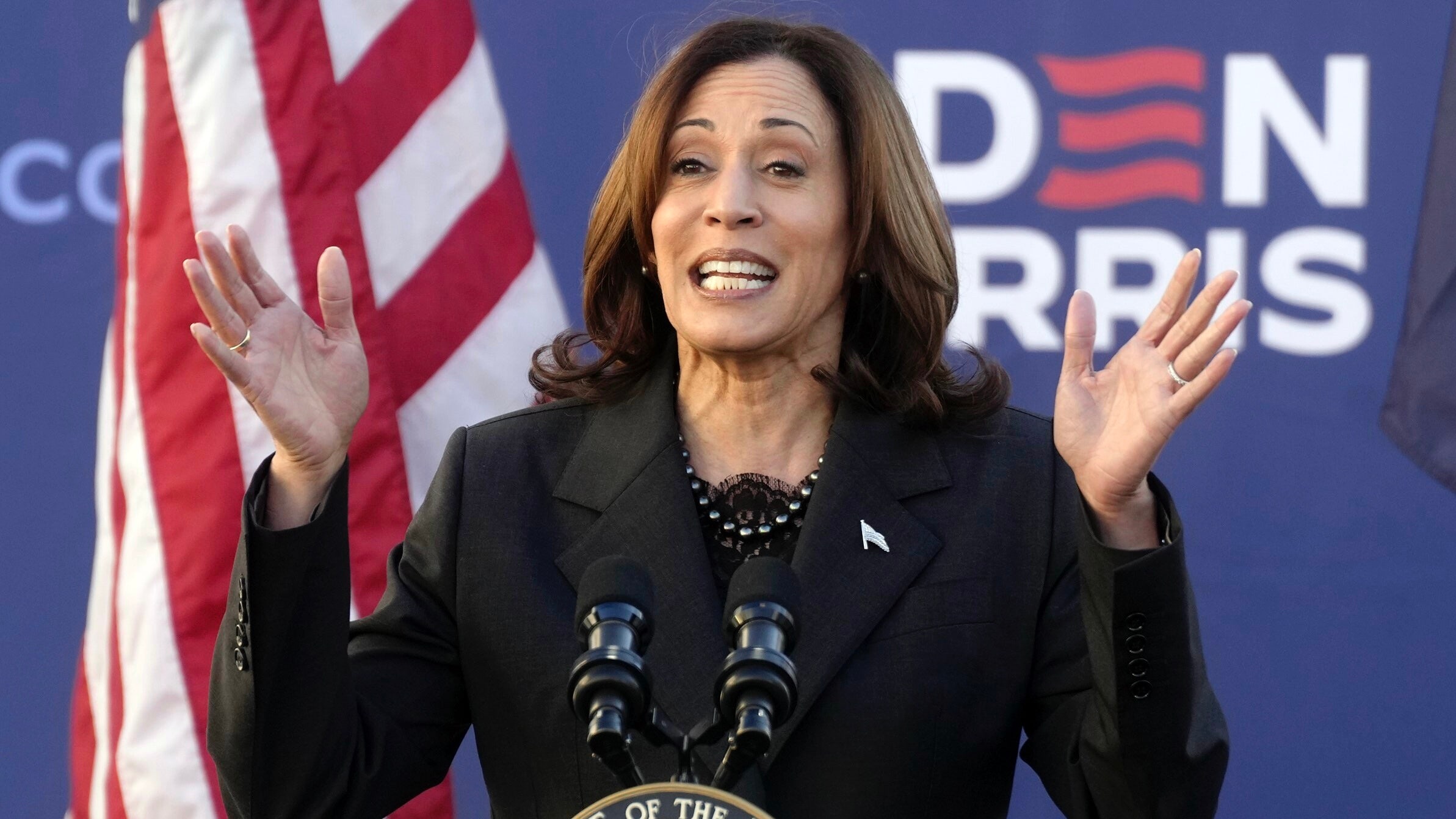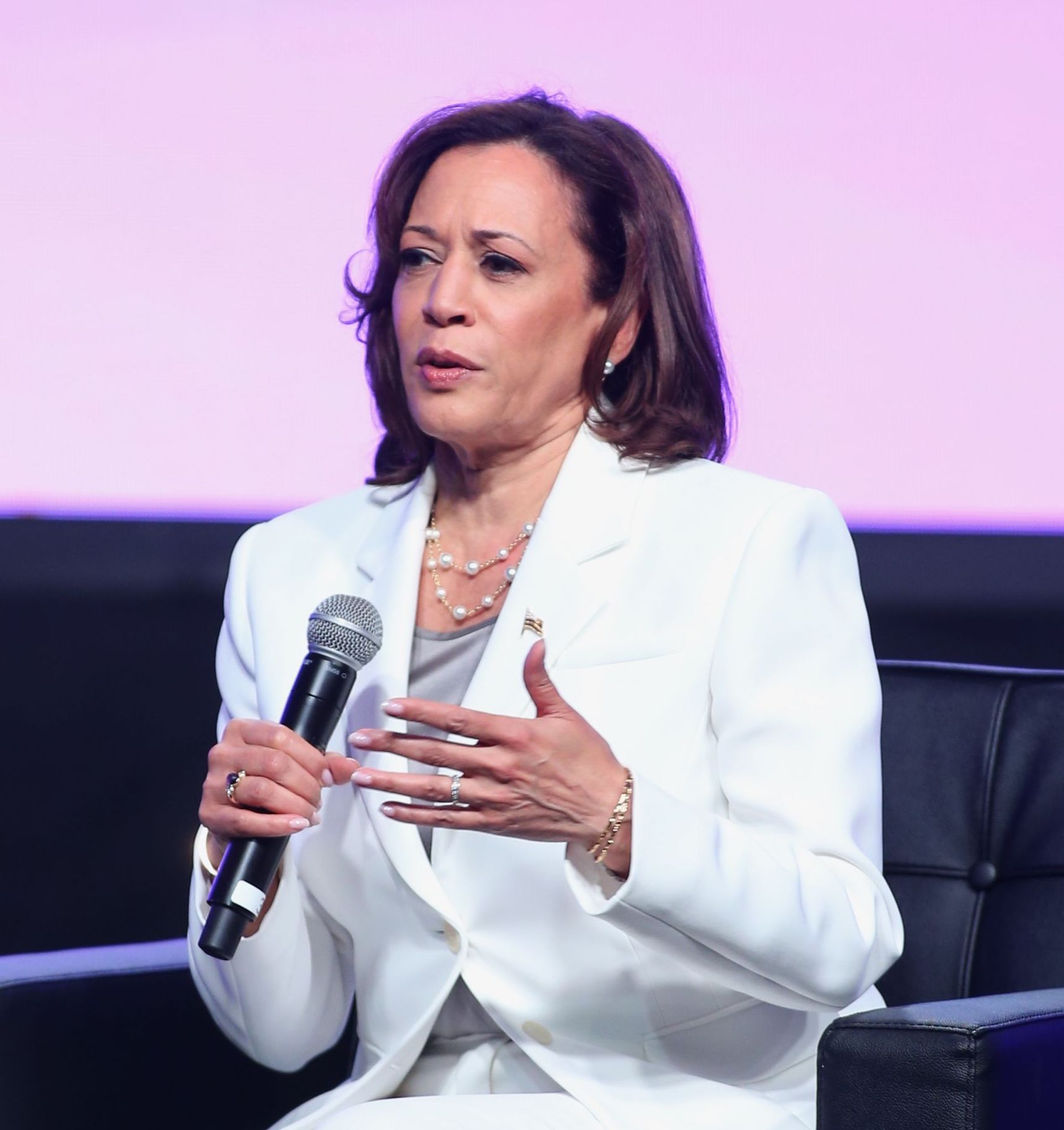Clint Eastwood and Kamala Harris represent two vastly different worlds—Hollywood and politics—but their names have occasionally intersected in surprising ways. From Clint Eastwood’s outspoken commentary on political figures to Kamala Harris’s rise as a trailblazer in American politics, their stories offer a unique lens through which we can explore the evolving relationship between entertainment and governance. Whether it’s Eastwood’s iconic roles or Harris’s historic achievements, both figures have captured the public’s imagination in their own right. This article delves into their respective biographies, public personas, and the intriguing moments where their paths have crossed, shedding light on how their legacies continue to influence modern discourse.
Clint Eastwood, the legendary actor and director, has long been a household name, known for his gritty performances and politically charged films. Meanwhile, Kamala Harris, the first female Vice President of the United States, has broken barriers and redefined leadership in the political arena. Though their careers have taken different trajectories, their stories are emblematic of the cultural and political shifts that have shaped America over the decades. As we explore their lives and contributions, we’ll uncover how these two figures, despite their differences, have both left an indelible mark on the nation’s collective consciousness.
For those curious about the intersection of Hollywood and politics, the dynamic between Clint Eastwood and Kamala Harris serves as a fascinating case study. Whether it’s Eastwood’s controversial remarks or Harris’s groundbreaking achievements, their stories resonate with audiences across generations. In this article, we’ll provide a comprehensive look at their backgrounds, their public personas, and the moments that have sparked conversations about their roles in shaping American culture and politics. So, buckle up as we dive into the lives of these two influential figures and explore the lessons we can learn from their journeys.
Read also:Kurt Russell The Legendary Journey Of A Hollywood Icon
Table of Contents
- Biography of Clint Eastwood
- Who is Kamala Harris?
- The Political Views of Clint Eastwood
- How Has Kamala Harris Influenced Modern Politics?
- What Are the Key Moments Where Clint Eastwood and Kamala Harris Crossed Paths?
- Why Does the Public Care About Clint Eastwood Kamala Harris?
- How Do Clint Eastwood and Kamala Harris Reflect Cultural Shifts?
- Frequently Asked Questions About Clint Eastwood and Kamala Harris
Biography of Clint Eastwood
Clint Eastwood is a name synonymous with grit, resilience, and cinematic excellence. Born on May 31, 1930, in San Francisco, California, Eastwood rose from humble beginnings to become one of Hollywood’s most iconic figures. Known for his stoic demeanor and commanding screen presence, Eastwood has carved out a legacy as both an actor and a filmmaker. His career spans over six decades, during which he has starred in and directed some of the most memorable films in cinematic history, including "Dirty Harry," "The Good, the Bad and the Ugly," and "Unforgiven." Beyond his contributions to entertainment, Eastwood has also been a vocal figure in political discussions, often using his platform to express his views on governance, leadership, and societal issues.
| Attribute | Details |
|---|---|
| Full Name | Clinton Eastwood Jr. |
| Date of Birth | May 31, 1930 |
| Place of Birth | San Francisco, California, USA |
| Profession | Actor, Director, Producer |
| Notable Works | "Dirty Harry," "Unforgiven," "Million Dollar Baby" |
| Political Views | Conservative, Libertarian-leaning |
Eastwood’s journey to stardom was not without its challenges. He began his career in the 1950s with small roles in television shows and B-movies, gradually building a reputation for his rugged charm and versatility. His breakout role came in the 1960s with Sergio Leone’s "Dollars Trilogy," which cemented his status as a global icon. Over the years, Eastwood has transitioned from acting to directing, earning critical acclaim for his work behind the camera. His films often explore themes of morality, justice, and redemption, reflecting his personal philosophy and worldview. Despite his success, Eastwood has remained a polarizing figure, particularly due to his outspoken political views, which have sparked both admiration and controversy.
Who is Kamala Harris?
Kamala Harris is a trailblazer in American politics, known for her groundbreaking achievements and unwavering commitment to justice. Born on October 20, 1964, in Oakland, California, Harris grew up in a family deeply rooted in civil rights activism. Her mother, a cancer researcher, and her father, an economist, instilled in her a strong sense of purpose and a dedication to public service. Harris’s career has been marked by numerous firsts: she is the first female Vice President of the United States, the first African American and South Asian American to hold the office, and the first woman to serve as the Attorney General of California. Her journey from prosecutor to politician has been nothing short of remarkable, earning her a reputation as a formidable leader and advocate for marginalized communities.
What Makes Kamala Harris a Unique Political Figure?
Harris’s rise to prominence is a testament to her tenacity and vision. She began her career as a deputy district attorney in Alameda County, California, where she focused on prosecuting child sexual assault cases. Her commitment to justice and reform earned her widespread recognition, paving the way for her election as the District Attorney of San Francisco in 2003. As Attorney General of California, Harris championed progressive policies, including environmental protection and criminal justice reform. Her tenure in the Senate further solidified her reputation as a champion of civil rights, healthcare, and economic equality. Harris’s ability to navigate complex political landscapes while staying true to her values has made her a role model for aspiring leaders across the globe.
The Political Views of Clint Eastwood
Clint Eastwood’s political views have been a subject of fascination for decades, often sparking heated debates among fans and critics alike. Known for his conservative and libertarian-leaning ideologies, Eastwood has never shied away from expressing his opinions on governance, leadership, and societal issues. His political commentary often reflects his belief in individualism, limited government intervention, and personal responsibility. Eastwood’s views have been shaped by his experiences growing up in post-World War II America, as well as his observations of the cultural and political shifts that have defined the nation over the years.
How Do Clint Eastwood’s Political Views Influence His Work?
Eastwood’s films frequently explore themes that align with his political beliefs. For instance, his directorial debut, "Play Misty for Me," delves into the consequences of unchecked obsession, while "Gran Torino" examines the complexities of racial prejudice and redemption. In recent years, Eastwood has tackled more overtly political subjects, such as the war on terror in "American Sniper" and the challenges of the American Dream in "The Mule." These films not only showcase Eastwood’s storytelling prowess but also serve as a reflection of his worldview. By addressing contentious issues through the lens of his characters, Eastwood invites audiences to engage in meaningful conversations about the state of the nation.
Read also:Who Is Michael Tell Unveiling The Life And Legacy Of A Remarkable Figure
How Has Kamala Harris Influenced Modern Politics?
Kamala Harris’s influence on modern politics is undeniable, as she has consistently pushed for progressive policies and championed the rights of marginalized communities. Her tenure as Vice President has been marked by a focus on healthcare, climate change, and economic equity. Harris has also played a pivotal role in addressing systemic racism and advocating for criminal justice reform, drawing on her experience as a prosecutor to propose meaningful solutions. Her leadership style, characterized by pragmatism and empathy, has resonated with a broad spectrum of Americans, making her a key figure in shaping the future of the Democratic Party.
What Challenges Has Kamala Harris Faced in Her Political Career?
Despite her achievements, Harris has faced significant challenges, including navigating the complexities of a divided Congress and addressing criticism from both sides of the political spectrum. Her role as Vice President has required her to balance the demands of governance with the expectations of a diverse electorate. Additionally, Harris has had to confront stereotypes and biases as a woman of color in a position of power, using her platform to challenge outdated norms and inspire the next generation of leaders. Her resilience in the face of adversity serves as a testament to her determination and unwavering commitment to public service.
What Are the Key Moments Where Clint Eastwood and Kamala Harris Crossed Paths?
While Clint Eastwood and Kamala Harris operate in vastly different spheres, there have been moments where their paths have intersected, albeit indirectly. One notable instance occurred during the 2012 Republican National Convention, where Eastwood delivered his infamous "empty chair" speech, criticizing then-President Barack Obama. Although Kamala Harris was not directly involved, the speech sparked broader discussions about political leadership and accountability, themes that Harris has often addressed in her career. Additionally, Eastwood’s films, such as "Richard Jewell," have explored real-life events that resonate with Harris’s advocacy for justice and fairness.
How Do Their Public Personas Complement or Contrast Each Other?
Eastwood and Harris represent contrasting yet complementary archetypes in American culture. Eastwood embodies the rugged individualism and self-reliance often associated with traditional conservatism, while Harris champions inclusivity, equity, and systemic reform. Despite their differences, both figures have used their platforms to advocate for change, albeit in different ways. Eastwood’s films often challenge viewers to confront uncomfortable truths, while Harris’s policies aim to address systemic inequities. Together, their stories highlight the diversity of perspectives that shape the nation’s ongoing dialogue about governance and leadership.
Why Does the Public Care About Clint Eastwood Kamala Harris?
The public’s fascination with Clint Eastwood and Kamala Harris stems from their ability to capture the zeitgeist of their respective eras. Eastwood’s enduring legacy as a Hollywood icon and his outspoken political views have made him a polarizing yet influential figure. Similarly, Harris’s historic achievements and commitment to justice have positioned her as a symbol of progress and change. Together, they represent the intersection of entertainment and politics, offering a unique lens through which to examine the cultural and societal shifts that have defined modern America.
What Lessons Can We Learn from Their Journeys?
Both Eastwood and Harris have demonstrated the importance of resilience, authenticity, and a willingness to challenge the status quo. Eastwood’s career serves as a reminder of the power of storytelling to provoke thought and inspire action, while Harris’s leadership highlights the impact of advocacy and representation in shaping a more equitable society. Their stories underscore the value of diverse perspectives in fostering meaningful dialogue and driving positive change. By examining their contributions, we gain a deeper understanding of the forces that continue to shape the nation’s cultural and political landscape.
How Do Clint Eastwood and Kamala Harris Reflect Cultural Shifts?
Clint Eastwood and Kamala Harris embody the cultural shifts that have defined America over the past century. Eastwood’s rise to fame coincided with the post-war era, a time of economic prosperity and social change. His films often reflect the tensions and aspirations of that period, from the rugged individualism of the Wild West to the moral complexities of modern society. Harris, on the other hand, represents the progress and challenges of the 21st century, as the nation grapples with issues of race, gender, and inequality. Together, their stories illustrate the evolving values and priorities of American society, highlighting the ongoing struggle for justice, representation, and unity.
What Role Do They Play in Shaping Public Discourse?
Both Eastwood and Harris have played pivotal roles in shaping public

